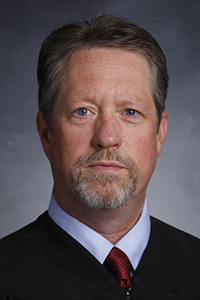In Minnesota, there are nearly 300 district court judges who preside over matters in ten judicial districts. While the Minnesota Rules of Court provide attorneys with significant information applicable to court proceedings, each judge may have his or her individual preferences with respect to motion practice and courtroom conduct.
In an effort to assist attorneys who may be appearing before a judge for the first time, the MSBA Civil Litigation Section Governing Council provided all district court judges with a brief survey. The responses that we received are organized on the right by judicial district and then alphabetically by judge’s name. We hope you find these responses to be helpful in your preparation for district court appearances.
For information about this project or to report an error in any judicial directory listing, contact Kara Haro, MSBA staff liaison to the Civil Litigation Section.
Fourth Judicial District Judges | Courtroom Preferences
Fellman, Todd
District Court Judge

Hennepin County
View state court bio
Contact with chambers:
Motion practice:
- Set forth your practices and procedures for scheduling motion hearings. Contact chambers with type of motion, proposed scheduling order, and anticipated length to schedule hearing.
- Identify any type of motion for which you do not require a hearing. Agreement of parties.
- Do you accept telephone calls from attorneys to rule on discovery disputes that occur during depositions? Yes, if necessary
- How much time do you allot for motion hearings? 15 - 60 minutes
- Set forth your practices and procedures with respect to attending a hearing by telephone or video conference. Professional rules should be followed.
- Set forth your practices and procedures with respect to discovery motions. Discovery should be complete prior to the trial. All issues surrounding discovery should be the subject of a motion in limine.
- Set forth your practices and procedures with respect to stipulations of the parties, including stipulations for protective orders. Agreed upon stipulations should presented to the court. All issues surrounding should be the subject of a motion in limine.
- Do you have particular requirements or procedures relating to requests to amend the scheduling order? Contact with the court with reason and timeline for compliance.
- Set forth your practices and procedures with respect to default proceedings. Be prepared to present sufficient case if motioning to proceed by default.
- Set forth your practices and procedures with respect to handling emergency motions. Contact law clerk to schedule as soon as possible.
Written submissions:
- Do you want to receive paper courtesy copies of the parties' written submissions? If you do, set forth the number and preferred format of courtesy copies and identify any document type you do not want to receive. Courtesy copies of written submissions are appreciated. Word or PDF are acceptable.
- Set forth your practices and procedures for requests to deviate from the requirements of the General Rules of Practice for the District Courts. Generally not approved.
In-court proceedings:
- Identify what technology you use in the courtroom and state whether you prefer a particular electronic format. Use of computer and other technology is encouraged if relevant a helpful to trier of fact.
- Set forth your practices and procedures with respect to attorney's use of technology in the courtroom and during trial. Please contact law clerk to prior to hearing to test technology in the courtroom.
- Set forth your practices and procedures with respect to the submissions of additional legal authority or other materials at or after oral argument. Appreciated if relevant and necessary for the court in making a decision.
- Do you permit parties to bifurcate oral argument so different attorneys address different legal issues? Yes.
Pretrial procedures:
- Describe your preferred procedures for pretrial settlement conferences, including the timing of such conferences, persons who must attend, whether persons may attend by telephone or video conference, and how you participate in settlement discussions. Any party necessary to settle the case should attend. Persons may attend via telephone or video conference with prior approval. In civil cases I will participate in an appropriate level based on the case.
- Set forth your practices and procedures for handling motions in limine. Submit prior to hearing and assume that material have been read.
- What is your schedule for a typical trial day? 8:00 a.m. to 5:00 p.m.
- Set forth your voir dire procedures. In person with questions to whole panel.
- Set forth your practices and procedures with respect to courtroom decorum, including movement in the courtroom, use of a podium, whether attorneys should sit or stand, and how to address witnesses. Civility and professionalism is a must. Counsel may move about the courtroom in a professional and respectful manner. Attorneys may sit or stand when addressing the court and should ask to approach a witness for the first time.
- Do you impose time limits with respect to opening statements and closing arguments? No.
- Identify your practices with respect to the use of technology in the courtroom during trial. Encouraged.
- Set forth your practices and procedures with respect to marking and using exhibits. Pre-mark exhibits. Exhibits should be discussed by counsel prior to hearing.
- Set forth your practices and procedures for handling objections. State your legal objection and please wait for the court to rule or ask for further clarification
- Set forth your practices and procedures with respect to the use of deposition testimony. Deposition testimony should be discussed with court prior to hearing or trial
- May attorneys obtain daily transcripts during trial? If so, what procedure should attorneys follow? Discuss with court reporter prior to hearing
- Set forth your practices and procedures with respect to attorney requests to contact jurors at the conclusion of trial. Court will inform the jury of their right to discuss case with counsel at the end of the trial.
Other matters:
- Set forth any other preferences, practices, or procedures attorneys and parties may find helpful. Civility and professionalism is expected.